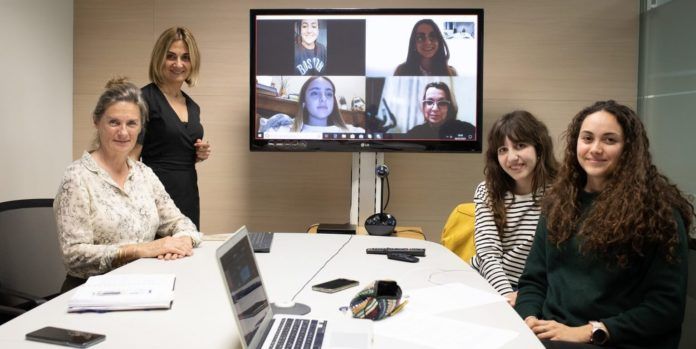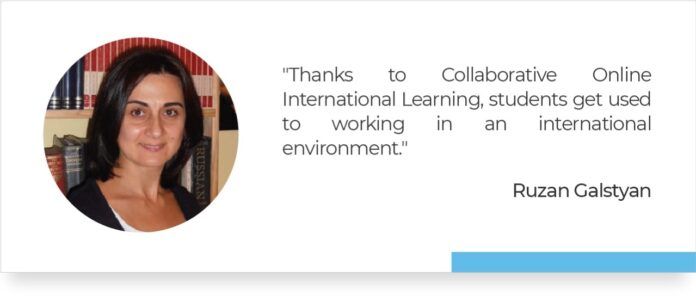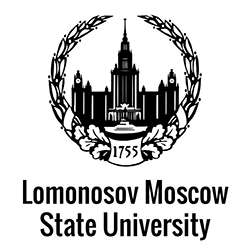It may be the first module but it is certainly not the only one: the COIL methodology has been brought to the Castellón campus by our professors Ruzan Galstyan and Anne Scharfenecker. With them, our students have been able to discover a new way of learning telematically, which is totally innovative, and connect in real time with their peers located thousands of kilometers away… in Russia!

And, as a first step in this disruptive experience, a group of students has been able to debate with their new classmates about different current issues: equality, stereotypes, education, social life… Over five sessions, and always with English as language of instruction, they have broken the physical borders and entered the world of interculturality. And, we must say, with great success.
On this educational adventure you have travelled (virtually!) from Castellón to Moscow. How did this trip come about, where did the idea of a COIL module in this degree come from?
The idea of taking this virtual trip has arisen due to the current circumstances of the global pandemic. This situation has forced us professors to incorporate and adapt new methodologies to stimulate, internationalize and work on socio-emotional competences.
In this process of working together with colleagues from the Lomonosov State University, what has been the main challenge that you have faced? Was it the technology, was it breaking the ice, was it the theme… or was it a smooth process?
The overall process has been smooth. However, factors such as the time difference between countries must be taken into account, as well as the time difference in the teaching of the subjects we chose for this COIL module in Education.
Another challenge that we had to face at the beginning was the “fear of the new”, a factor that has been common to all the projects we have carried out. It is important to note that once the project started, the participants felt comfortable and interested in visiting the universities to get to know each other personally and learn about the different cultures.
Our students have been able to exchange opinions on different current issues and discover the differences between Spain and Russia, has there been any aspect that has attracted your attention especially, both to the Russian and the Spanish colleagues?
The topics that were addressed in the project were education, stereotypes, equality and fashion. It was interesting to listen to the participants, because in addition to expressing their personal opinions, they reflected the idiosyncrasy and culture of each country, especially when the topic was about women and their role in society.
What objectives did you pursue at the start of this COIL project in Education? Do you consider you achieved them?
As we said at the beginning, the main objective was to help students improve their linguistic competence and give them the confidence they needed to be competent at all language levels (that is, at the lexical, grammatical, pragmatic, sociolinguistic and textual levels). We wanted to create an environment where the learner could realize that they know how to speak and they can be understood.
The second objective was to improve their emotional state during the lockdown.
COIL in Education: training future teachers
Interculturality, critical thinking, empathy, communication skills… Do you think these competences are necessary in the curricular profile of a teacher?
We think that these skills are key to the profile of a teacher. Years ago, more importance was given to the exclusive transmission of knowledge that the teacher could provide to the student while nowadays that transmission is targeted at a much more emotional level.

Students currently expect support from the teacher to improve and make progress in their development and personal values. With this we intend to say that, in addition to being a great professional in his field of knowledge, teachers must help develop the civic values necessary to face the circumstances of life.
What has been the general opinion of the students after having gone through this experience? Have you been asked “when are we going to Russia?”
Yes, the project has been a success! Students at Lomonosov State University are looking forward to visiting us and planning projects for the upcoming academic year. In addition, the professors are trying to reach an agreement between the departments to facilitate the functioning of future projects.
“WITH COIL, STUDENTS TRAIN THEIR DIGITAL, COMMUNICATIVE AND INTERPERSONAL SKILLS.”
Besides the project with the Lomonosov State University, we have launched two other projects with the Lahti University of Applied Sciences in Finland and another one in which the three universities will participate: the Lomonosov Moscow State University, the Lahti University of Applied Sciences and the University CEU Cardenal Herrera. We have designed this ECOE project with the participation of the Nursing Coordinator, Isabel Almodóvar.
Since we have such a close relationship with our partner universities, we are studying the possibility of developing other COIL modules with the Faculty of Health Sciences of the CEU UCH in Castellón and the Lomonosov State University.









